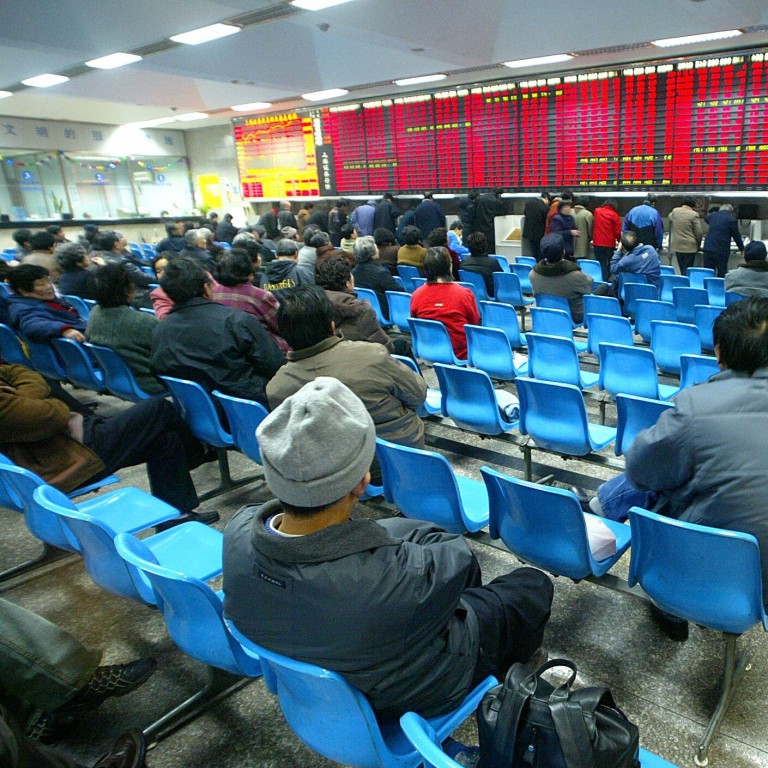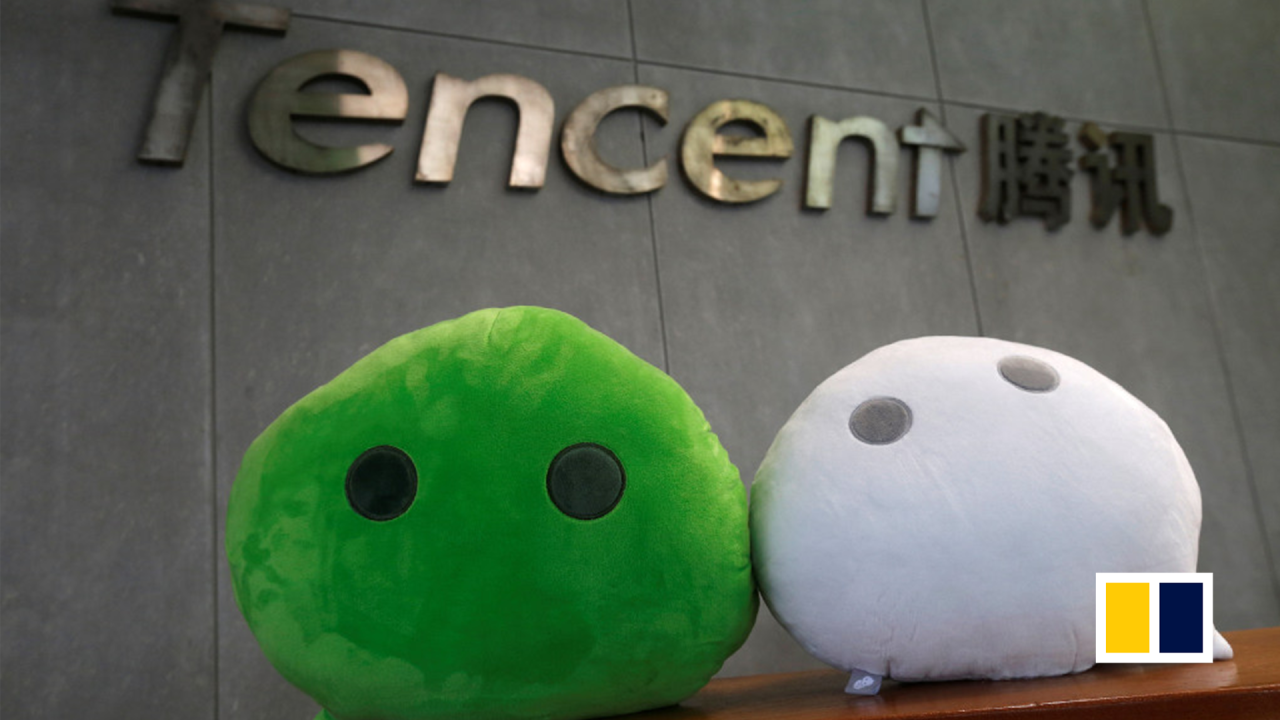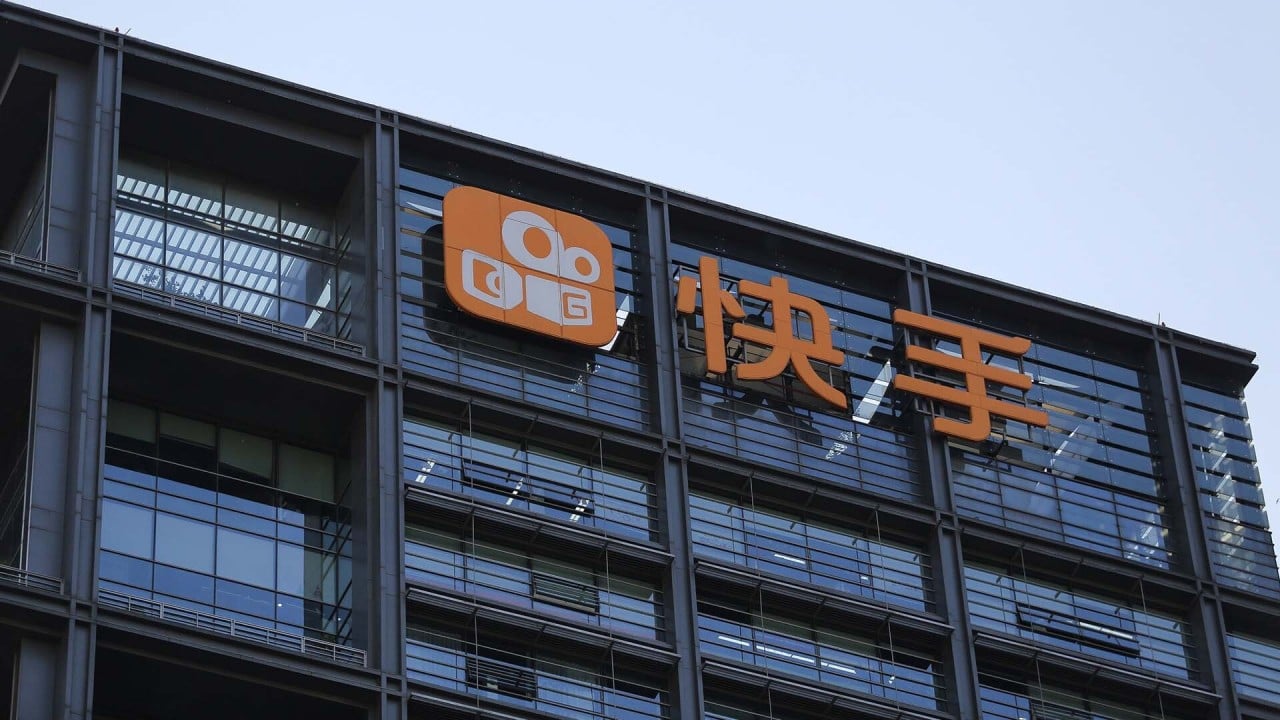
Five Hong Kong stocks most vulnerable to mainland China fund reversal as Lunar New Year holiday brings liquidity test
- A five-day trading pause in China will test support for Hong Kong stocks recently supercharged by mainland cash
- Tencent, China Mobile, CNOOC, Meituan and HKEX have been top recipients of southbound fund inflows since November last year
The returns have been immense for market leaders and sanction victims alike, thanks to a record amount of purchases by mainland funds at the turn of the new year. Tencent Holdings has surged 30 per cent over the period, while China Mobile and CNOOC – bashed through months of US-China feud and sanctions – have rallied by 6 per cent and 19 per cent each.
What could possibly go wrong?
The Lunar New Year break could offer the first test of nerves with potential for a liquidity drain, given a timing mismatch. Hong Kong’s markets will shut on February 12 and 15, while mainland China’s bourses will pause for five trading days from February 11 to 17.
The Stock Connect’s southbound channel closes earlier from February 9 while the northbound pauses from February 11, according to stock exchange data.
Without a quantum leap in earnings, however, valuations are stretched. The risks of a pullback among the favourite picks have magnified, some analysts said.
Here are the top five favourite picks and, one could argue, the most at risk to a reversal in capital flows.
Tencent Holdings
The stock trades at about 40 times future earnings, compared with an average of 11.5 times for the Hang Seng Index members. There are 59 buys, four holds and one sell rating on the stock, according to analyst ratings compiled by Bloomberg.
The consensus 12-month price target is HK$735.09, implying only a 0.3 per cent upside from its current price.

02:26
What makes Tencent such a tech goliath?
China Mobile
The telecoms company is the world’s largest based on its almost 942 million subscribers. The stock is one of a handful of entities targeted by the Trump administration for its alleged ties to Chinese military.
The stock suffered a 33 per cent thrashing in 2020, on par with its peers China Telecoms and China Unicom. Chinese funds have ploughed at least HK$46 billion into the stock since November.
China Mobile trades at 7.4 times future earnings, versus 12.4 times for companies in the MSCI global telecoms services industry, according to Bloomberg data. There are 21 buys, one hold and one sell recommendation on the stock.
The consensus 12-month price target is HK$68.36, implying a 46 per cent upside.

02:01
What is Kuaishou? Understanding China’s video-sharing app
CNOOC
Like China Mobile, the state-controlled oil explorer was added to the US investment restrictions which later prompted major index compilers to delete them from some global benchmarks.
The stock has risen 19 per cent this year, after sliding 45 per cent in 2020, aided recently by a rebound in crude oil to a January 2020 high. More than HK$30 billion of net purchases have supported the stocks since November. Its forward PE stands at 12.9 times, versus 24 times for ExxonMobil and 11.4 times for Royal Dutch Shell.

06:04
US-China relations: Joe Biden would approach China with more ‘regularity and normality’
All 26 analysts have a buy call on the stock, according to those tracked by Bloomberg. The 12-month price target stands at HK$11.02, which is 29 per cent higher than its last-traded price.
Meituan
The food delivery group has appreciated 36 per cent this year, after a stellar 189 per cent gain in 2020. The Covid-19 pandemic has increased the appeal of tech stocks that thrive on new eating habits as a results of dine-in restrictions.
The stock trades at 535 times forward earnings. There are 50 buy, four hold and zero sell ratings while the consensus 12-month price target is HK$386.27, suggesting a 4 per cent downside from current level.
Hong Kong Exchanges and Clearing
The local stock exchange operator has risen 22 per cent this year, in addition to a 68 per cent advance in 2020. Investors poured at least HK$19.7 billion of net purchases into the stock between November and January.
HKEX, as the firm is known, is the biggest beneficiary of the surge in trading volume on the exchange. The average daily turnover in January was HK$245.7 billion, an increase of 136 per cent from HK$103.9 billion a year earlier.
The stock commands 57.6 times future earnings multiple, a premium over global peers. Chicago-based CME Group trades at 30 times while the London Stock Exchange Group fetches about 44 times.
There are 19 buy, 10 hold and two sell ratings on the stock. The consensus 12-month price target of HK$486.09 indicates a potential 6 per cent drop from the current level.

01:57
Villagers in southwestern China greet Lunar New Year with traditional rice cakes and bamboo horns
While the Lunar New Year may temper short-term expectations on fund inflows, many analysts are still optimistic about the longer term outlook following some recent upgrades by banks including Goldman Sachs and China International Capital Corp.
“We are absolutely feeling the quantum of the increase,” Eva Lee, head of Hong Kong equities in the Chief Investment Office of UBS Global Wealth Management, said in a February 5 report. “A number of the top beneficiaries do not have A-share exposure, and that has been a key factor behind their appeal.”
Southbound funds’ favourite picks all have fairly large market capitalisation and should not face outsized volatility even in the absence of southbound support, she added. China’s central bank has also historically kept repo rates at relatively low levels after the Lunar New Year holiday, likely supporting inflows when markets reopen, Lee said.
Mainland Chinese investors were still buying into Hong Kong stocks in the first week of February, by a sizeable HK$58.2 billion, according to stock exchange data. That is a bullish sign to Wei Wei, an analyst at Ping An Securities.
“Southbound funds are still in the first stage of building up positions,” Wei said. “The bull run on Hong Kong’s stocks is far from being over.”


